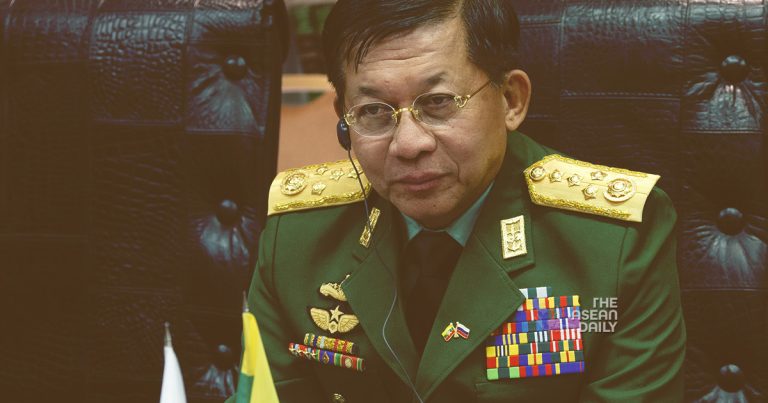14-12-2023 (YANGON) Analysts warn that the Association of Southeast Asian Nations (ASEAN) could be caught “off-guard” in the event of Myanmar’s military regime collapsing. They argue that it is currently “too early” to predict the junta’s demise due to the presence of army loyalists and a lack of central command within the opposition.
The recent escalation of Myanmar’s civil war has placed the country on the brink, and it appears that ASEAN does not have a contingency plan, according to the analysts. In a recent interview, Zin Mar Aung of the National Unity Government (NUG), the Myanmar government in exile, highlighted the low morale among the junta and its soldiers, with many personnel defecting. She also mentioned that coordinated attacks by key resistance groups had resulted in the seizure of four border trading points with China.
However, Mikael Gravers, an associate emeritus professor at Aarhus University in Denmark, cautions against prematurely predicting the regime’s collapse. He referred to the regime’s top general, Min Aung Hlaing, and his extensive military network as obstacles to a collapse. Gravers, who has been researching Thailand and Myanmar for over five decades, pointed out that the army still possesses loyal and functioning units, while many in the resistance rely on outdated or homemade weapons.
Sharon Seah, a senior fellow and coordinator at the ASEAN Studies Centre in the Iseas-Yusof Ishak Institute in Singapore, emphasized the need for greater coordination among resistance forces and the emergence of a central command before predicting the regime’s collapse. She identified the military losing control of a major township, such as Laukkai or Mandalay, and the withdrawal of support from China and India as significant signs to watch for.
Seah also noted that although discussions about the potential fragmentation of Myanmar have taken place in the region, no serious contingency plans have been made. Myanmar’s immediate neighbors, China, India, and Thailand, are particularly concerned about the implications of a collapse for their border security and have been closely monitoring the situation.
Rifki Dermawan, an international relations lecturer at Andalas University in West Sumatra, believes that ASEAN is unprepared for drastic change in Myanmar. Dermawan suggests that individual countries such as Malaysia, Indonesia, Singapore, South Korea, China, and India may be better suited to play a meaningful role in negotiations concerning Myanmar’s future.
Another possible scenario, according to Htwe Htwe Thein, an associate professor at Australia’s Curtin University, is a military reform where the top generals are replaced. However, she highlights the lack of trust in these leaders by the opposition and emphasizes the need for increased humanitarian assistance if negotiations were to occur. Since the October offensive, nearly half a million people have been internally displaced, with food, shelter, hygiene, basic health, and protection identified as the most pressing needs in conflict-affected areas, according to the UN Office for the Coordination of Humanitarian Affairs.
The deteriorating economic situation and regime mismanagement are currently the most significant challenges for the regime. Fuel scarcity, a rapid devaluation of the kyat, and rising prices of essential goods are contributing to an impending bankruptcy that could exacerbate the internal loyalty crisis within the military network. This could potentially force the generals into negotiations with the NUG. However, the trustworthiness of Min Aung Hlaing and the disarmament of his forces remain significant hurdles.




